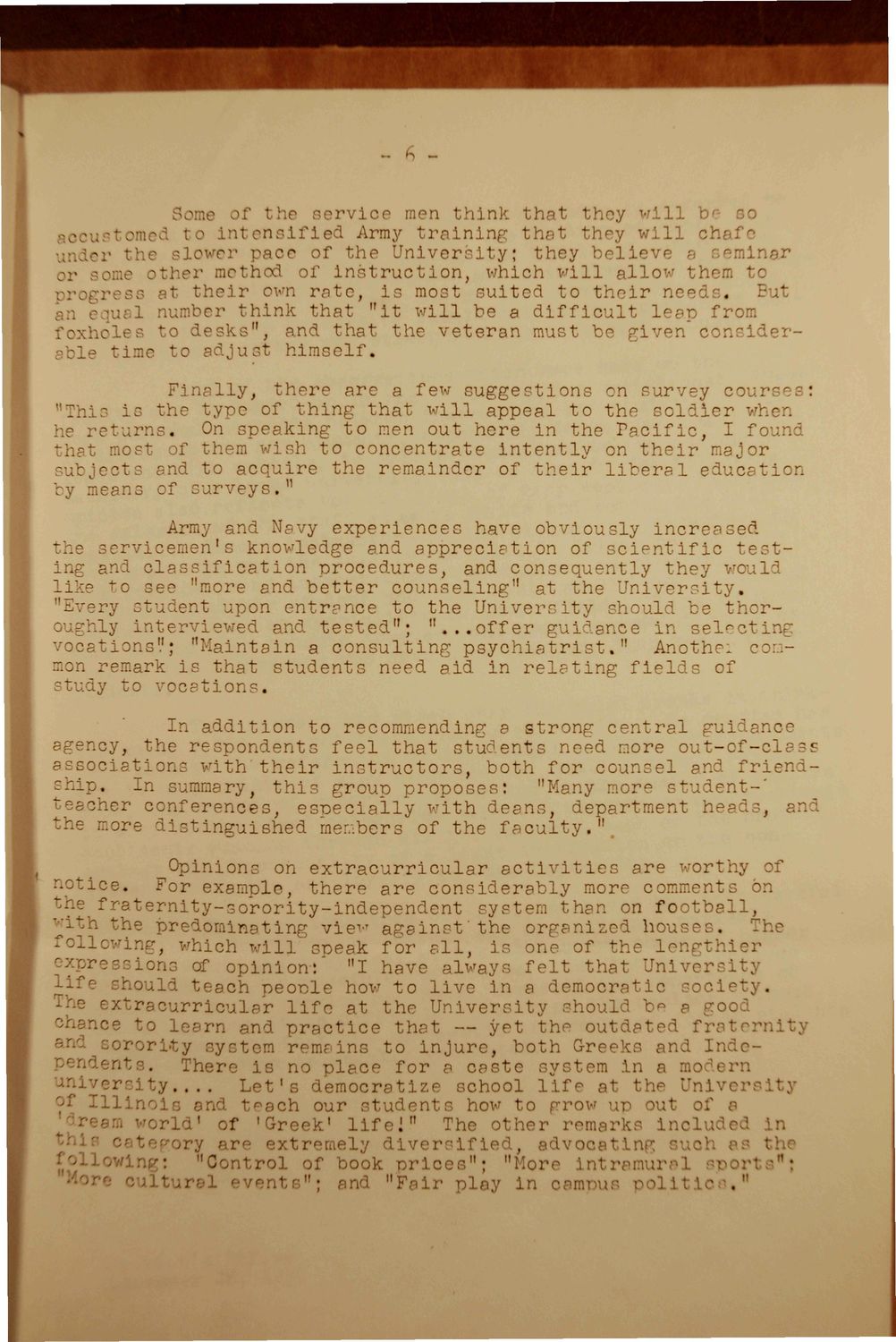| |
| |
Caption: Booklet - Illini in Service Survey (1944)
This is a reduced-resolution page image for fast online browsing.

EXTRACTED TEXT FROM PAGE:
- 6of the ice men think that they will be- GO toraed to intensified Army training that th^y will chafe N jr slower paoe of the University; they believe a sminar > SOE of. > method of instruction, which will allow them to r r progrei at their own rate, is most suited to t ir needs* But l equal number think that "it will be a difficult leap from ioles to desks", and that the veteran must be riven considerable tj e to adjust himself. Finally, there arc a few suggestions en survey course : "This is the type of thing that will appeal to the soldier when he returns. On speaking to men out here in the Pacific, I fc hat most of them wish to concentrate intently on their major subjects and to acquire the remainder of their liberal education 1 1 by means of surveys." Army and Navy experiences have obviously increased. the servicemen's knowledge and appreciation of scientific testing and classification procedures, and consequently they would 11 5 to see "more and better counseling" at the University. "Every student upon entrance to the University should be thcrc hly interviewed and tested"; "...offer guidance in sele?^; vocations"; "Maintain a consulting psychiatrist." Anothc. common remark is that students need aid in relating fields of sti y to vocations. In addition to recommending a strong central guidance agency, the respondents feel that students need core out-of-class a sociations with their instructors, both for counsel and friendship. In summary, this group proposes: "Many mor° student-' teacher conferences, especially with deans, department he , an the more distinguished me bcrs of the faculty.". Opinions on extracurricular activities are worthy of notice. For example, there are considerably more comments on the fraternity-sorority-independent system than on football, with the predominating view a ainst'the organized houses. The f Lie inr, which will speak for all, J one of the lengthier ions of opinion:' "I have always felt that University 1ho teach peo-ole how to live in a democi tic soci by. The extracurricular life at the University should R a good ance to learn and practice that — yet the outdated fr, tei ^y orority sy tern remains to injure, both G r < \ and 1 e-e There is no place for a caste system in a mc ' n ! '• .-ty.... I t s democratize school life at the University Lin • i t^ach 1 . our tudents how to grow up out of a •Id' of 'Greek lif 1" The other run, ! included * • ; are extremely div p Lfled, j oca* ng / i i 13 wing: "Cuntrol of book price "; "More int I ': itural events"; and "Fair play in camrms lit i ."
| |